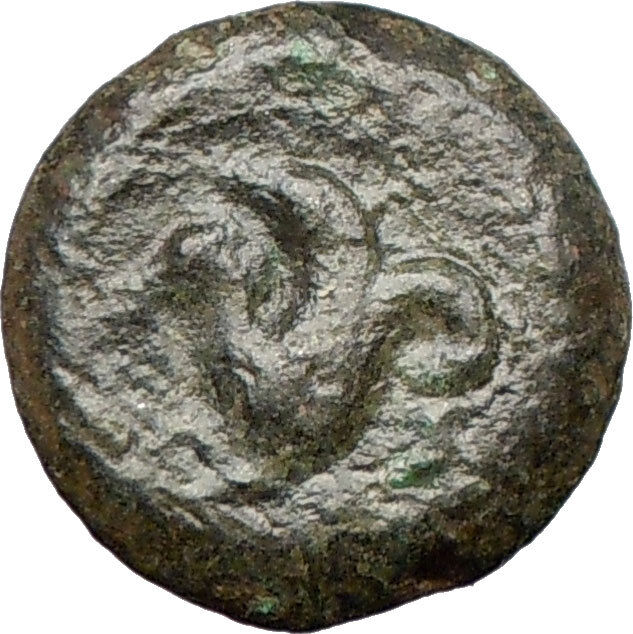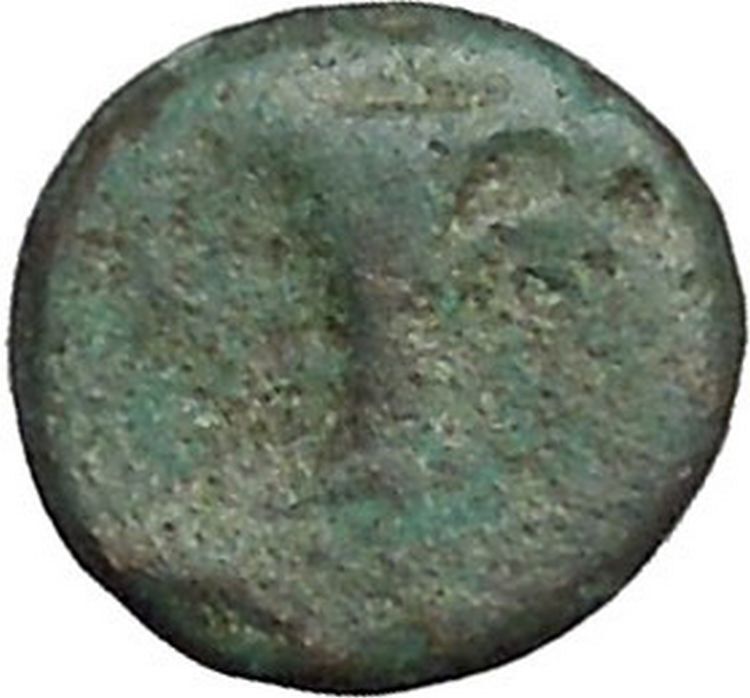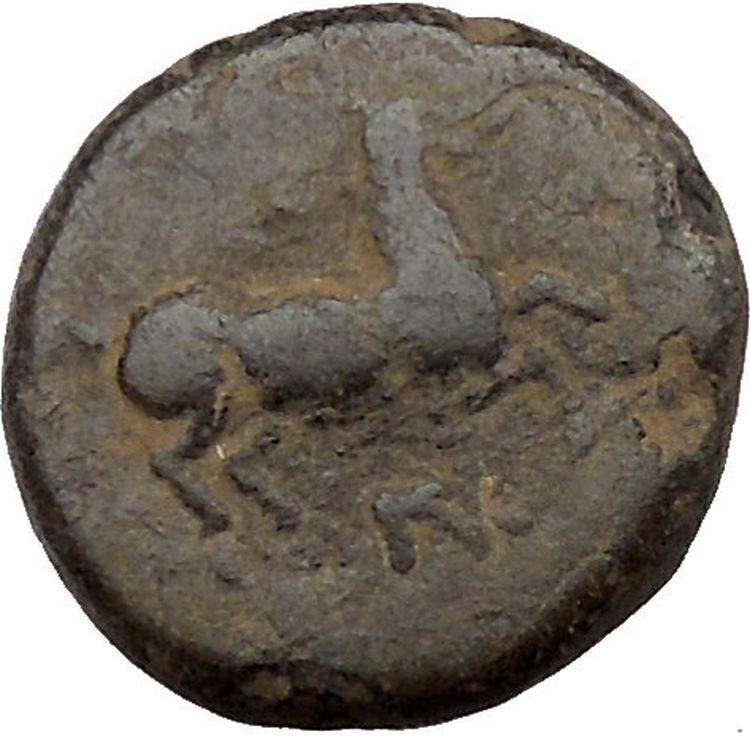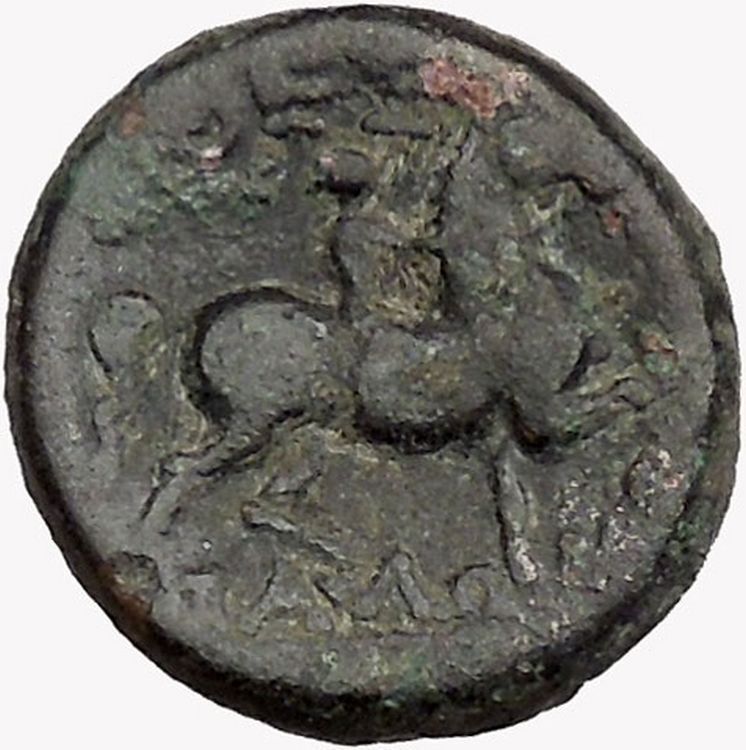|
Seleukid Kindom
Antiochos IX Kyzikenos – King: 113-96 B.C. –
Bronze 13mm (2.6 grams) Antioch on the Orontes mint, dated SE 200, struck 113/112 B.C.
Reference: HGC 9, 1257; SC 2365; SNG Spaer -;
Head of young Hercules to right wearing lion-skin headdress.
ΒΑΣΙΛΕΩΣ ΑΝΤΙΟΧΟΥ ΦΙΛΟΠΑΤ, club with handle upwards; Σ (date) to inner left.
Son of Antiochos VII and Cleopatra, Antiochos Kyzikenos claimed a share of his half-brother’s kingdom, and captured Antioch in 113 B.C. The struggle continued for many years, gravely weakening the Seleukid state and was only finally resolved by the murder of Antiochos VIII in 96 B.C. Antiochos IX perished the following year at the hands of his nephew, Seleukos VI.
You are bidding on the exact item pictured, provided with a Certificate of Authenticity and Lifetime Guarantee of Authenticity.
Antiochos IX Kyzikenos, ruler of the Greek Seleucid kingdom, was the son of Antiochus VII Sidetes and Cleopatra Thea. Upon the death of his father in Parthia and his uncle Demetrius II Nicator’s return to power (129 BC), his mother sent him to Cyzicus on the Bosporus, thus giving him his nickname. He returned to the Seleukid Kingdom in 116 BC to claim the Seleucid throne from half-brother/cousin Antiochus VIII Grypus, with whom he eventually divided the kingdom. He was killed in battle by the son of Grypus, Seleucus VI Epiphanes in 96 BC.
The Seleucid Empire was a Hellenistic state ruled by the Seleucid dynasty founded by Seleucus I Nicator following the division of the empire created by Alexander the Great. Seleucus received Babylonia and, from there, expanded his dominions to include much of Alexander’s near eastern territories. At the height of its power, it included central Anatolia, the Levant, Mesopotamia, Kuwait, Persia, Afghanistan, Turkmenistan, and northwest parts of India.
The Seleucid Empire was a major center of Hellenistic culture that maintained the preeminence of Greek customs where a Greek-Macedonian political elite dominated, mostly in the urban areas. The Greek population of the cities who formed the dominant elite were reinforced by emigration from Greece. Seleucid expansion into Anatolia and Greece was abruptly halted after decisive defeats at the hands of the Roman army. Their attempts to defeat their old enemy Ptolemaic Egypt were frustrated by Roman demands. Much of the eastern part of the empire was conquered by the Parthians under Mithridates I of Parthia in the mid-2nd century BC, yet the Seleucid kings continued to rule a rump state from the Seleukid Kingdom until the invasion by Armenian king Tigranes the Great and their ultimate overthrow by the Roman general Pompey.
|










